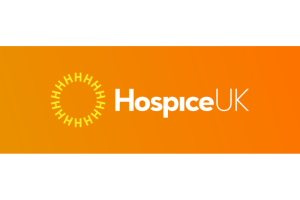Following the tragic deaths of three residents at Gainsborough Care Home, Raina Summerson, Group Chief Executive of Agincare, reflects on the sleepless nights, the lessons learned, and why leaders need honesty, support, and collaboration in times of crisis
Now that the investigation has closed, I want to share a positive message with families and with the Swanage community about our team at Gainsborough Care Home and the care they deliver. First and foremost, I feel immense gratitude to all those who gave their support and understanding throughout what has been an incredibly challenging period. Gainsborough has been at the heart of Swanage for many years, and the way the community rallied around on the day of the incident, and in the months that followed, was humbling. We also received extraordinary support from colleagues across the wider social care sector. When the police investigation confirmed that no third party or environmental factor was responsible for the sad loss of three residents, it was a huge relief. Our recent Good-rated Care Quality Commission, (CQC), inspection and council monitoring visits also gave us reassurance — and positive feedback — about our team and the quality of care they provide.
The biggest lesson I take from this incident, and what I would share with other providers, is the importance of honest reflection, transparency, communication, and readiness in moments of crisis. This was the first major incident of this kind in almost forty years at Agincare. The reality of social care is that incidents can happen, whatever the cause. That is why we must regularly review and test our business continuity plans, and why leaders must balance managing the immediate situation with continuing to support all the other people and services that rely on us.
I cannot overstate how proud I am of the Gainsborough team. They were thrown into a major incident that involved a full home evacuation, national publicity, and the arrest of a manager they deeply respected. Despite the shock and speculation, they showed professionalism at every step, continued to advocate for residents, and supported each other. Many of them live locally, which meant facing very personal and public scrutiny, as well as press intrusion and trial by social media. Their resilience under such pressure was extraordinary. Even in the face of fear and public judgment, they never wavered from their values or their commitment to residents and families.
One of the most difficult aspects was the swirl of speculation on social media. Being unable to speak publicly and candidly was frustrating, but unavoidable while the police investigation was ongoing. The silence created a vacuum that harmful speculation quickly filled. My advice to other providers is to prepare for this in advance. Have robust communication plans, support staff who may face online hostility, and ensure access to experienced legal professionals. We had fantastic support from our legal partners from day one. Above all, stay focused on the people directly affected, and don’t get drawn into the noise of social media.
The wellbeing of our team was — and remains — a priority. We provided counselling, direct access to employee assistance programmes, and additional practical and financial support where needed. For the manager involved, this included immediate legal representation, emergency accommodation when national media camped outside her home, and ongoing support when she returned to work.
I know this incident has left many care managers across Agincare and beyond asking themselves, “Could this happen to me?”. That sense of vulnerability is deeply worrying for our sector. The sudden criminalisation of a respected care professional without full context or evidence sent shockwaves through social care. We must ensure leaders are supported, not isolated, when crises happen. That means more balanced media coverage, better public understanding of the realities of social care, and systemic recognition that risk is inherent in this work.
I also want to reassure families considering residential care. Safeguarding is robust, with safety protocols, regular audits, and continuous staff training in place. Increasingly, digital care planning systems are helping us provide transparency, timely interventions, and rapid responses to changing needs. Most importantly, I see — every day — residents in our homes living well, cared for with dignity, and sharing laughter, friendship and connection.
This case also underlined the importance of partnership working. We were part of a multi-agency response involving the council, police, and ambulance services, all working under pressure. What became clear is that greater mutual understanding and better pre-agreed protocols are essential. Care providers should be seen as partners in such moments, not just as organisations to be scrutinised.
Finally, I want to emphasise that we are embedding the learning from Gainsborough across Agincare. We have conducted internal reviews and joined multi-agency reviews to reflect and learn. The lessons cannot stay with individuals or in silos; they must be shared and applied nationally across our organisation. The impact of this incident has been profound and long-lasting. But what remains strongest in my mind is the resilience, compassion, and professionalism of the Gainsborough team, and the continued trust of the families we support. That is the heart of social care — and it is something I remain incredibly proud of.







